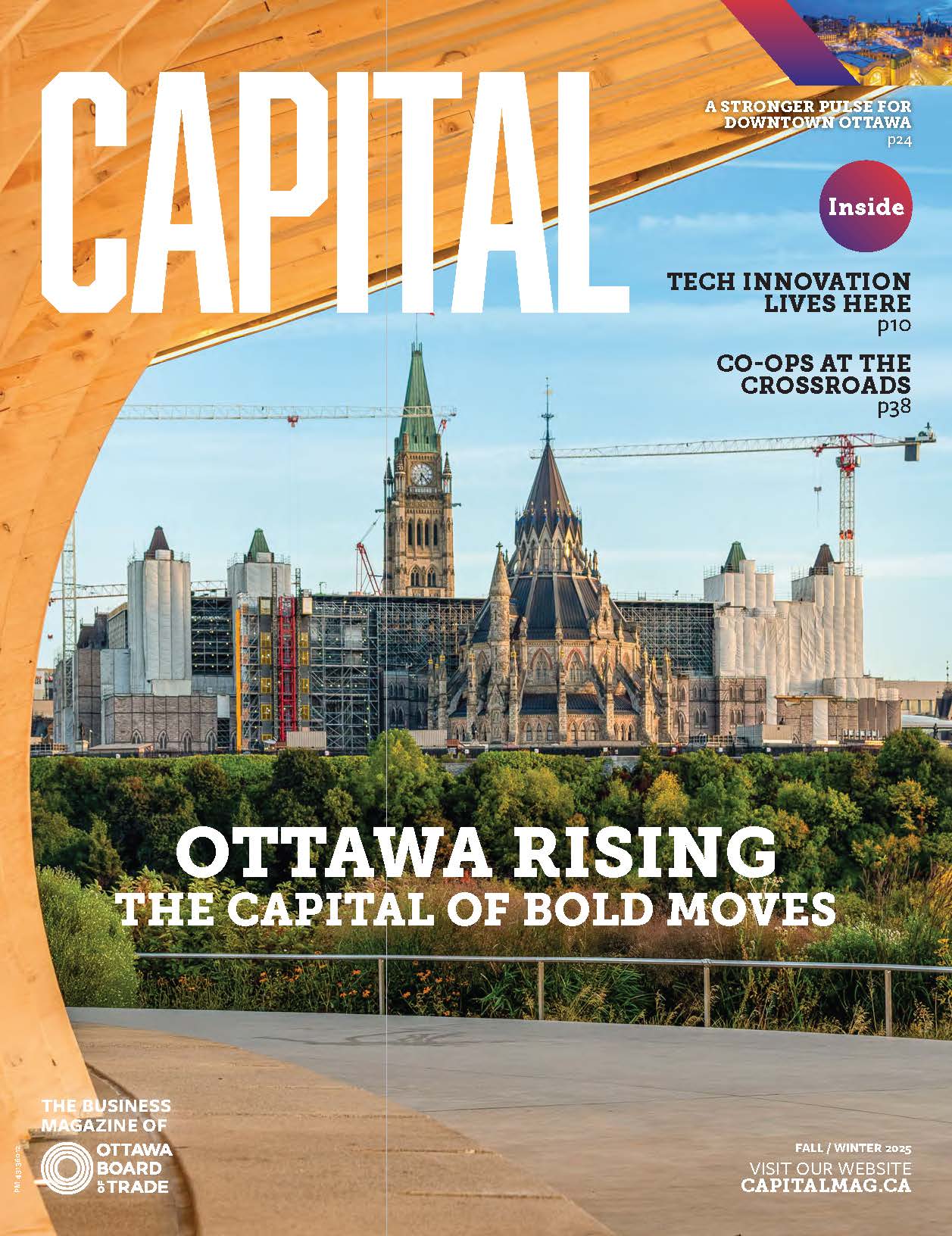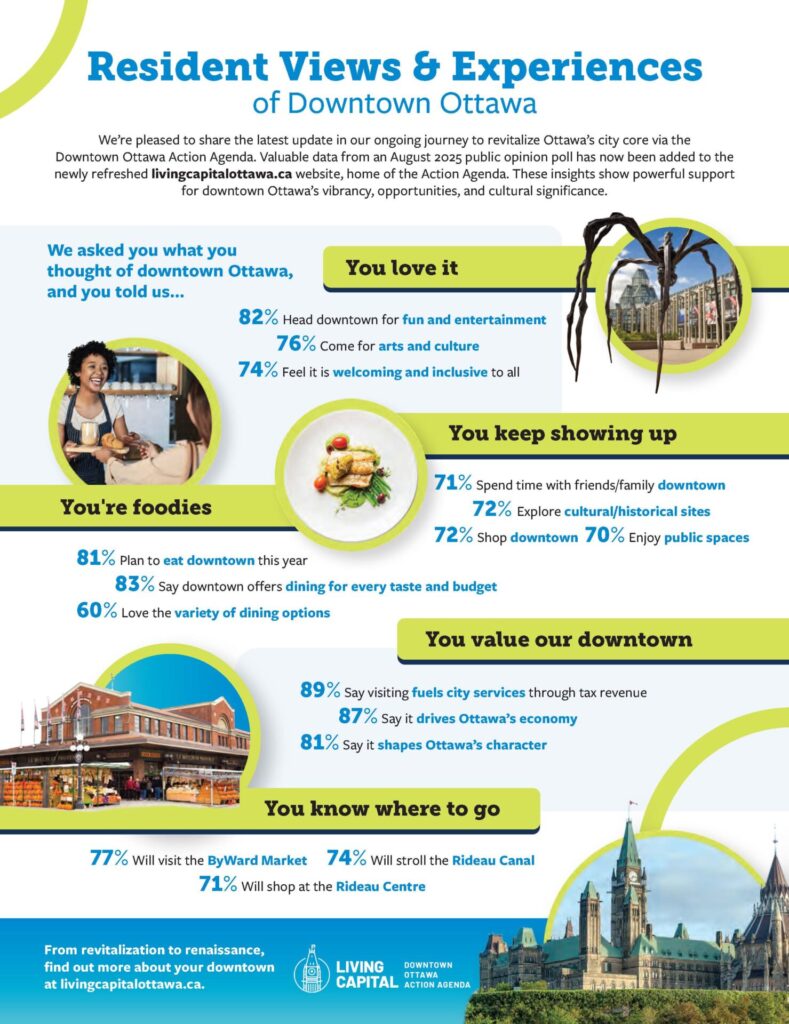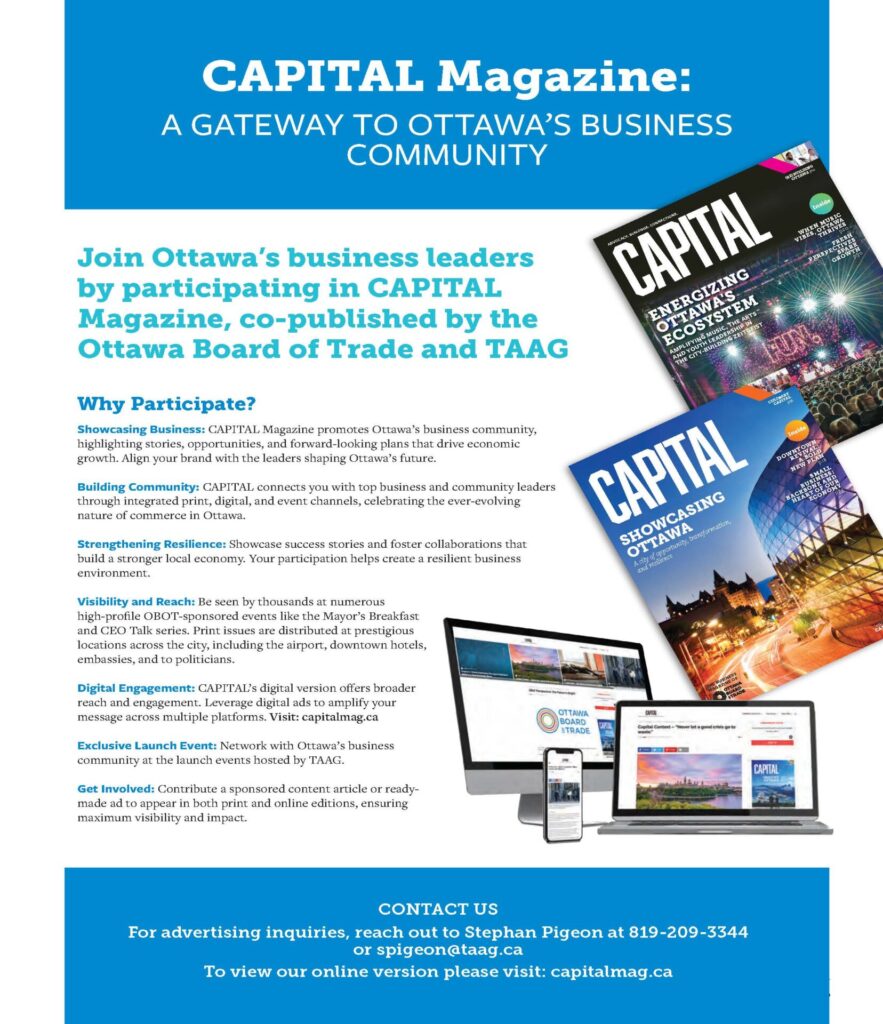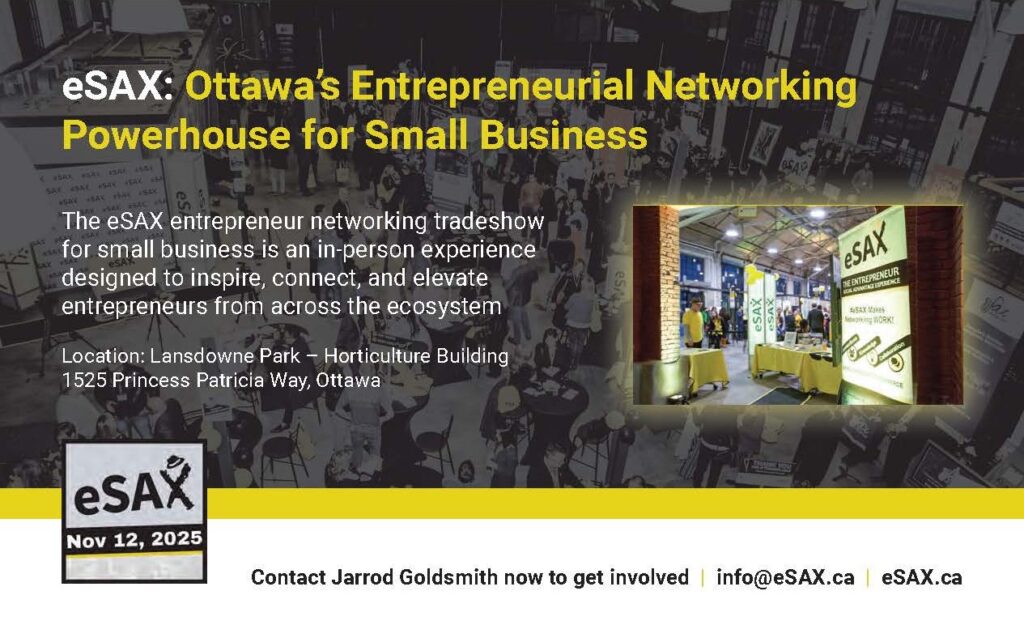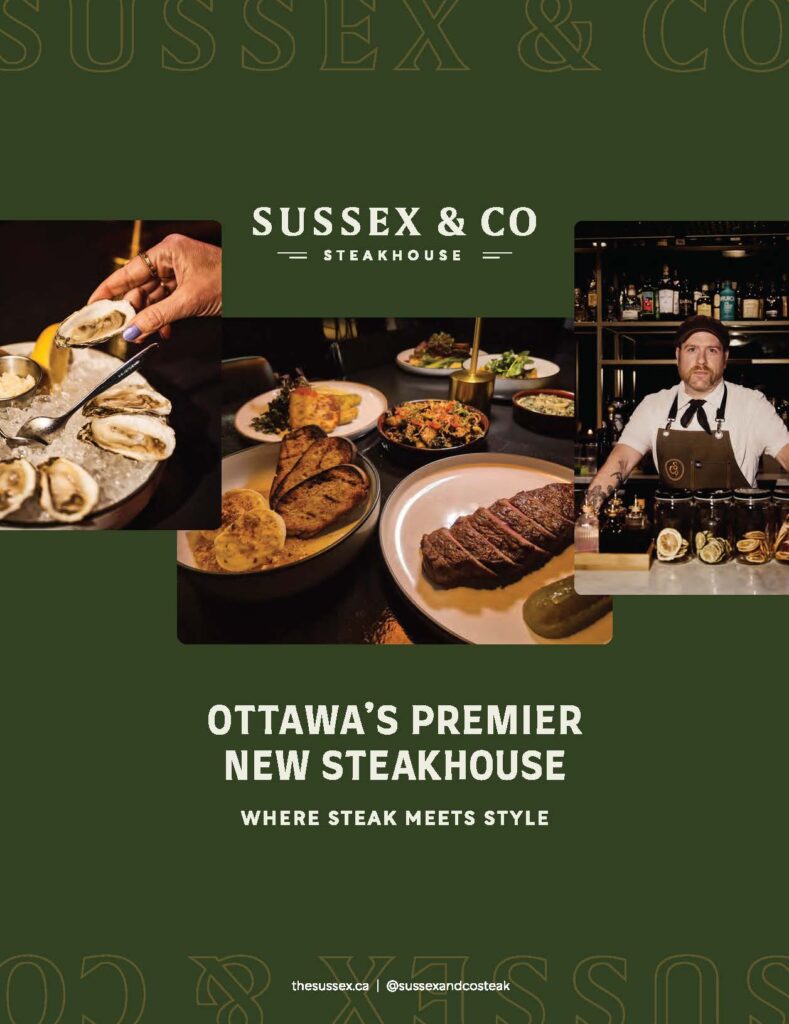Feature – Cultivating Millennial-Run Businesses Through Dialogue

It’s important to shape the prevailing narratives concerning millennial entrepreneurs into conversations that will help them grow their businesses.
By Anna Williams
CONVERSATION FOR THE sake of disseminating knowledge is only the first step to benefiting the future of the National Capital Region and our country as a whole. We all have something to learn both from the generations that came before us and the contributions of those who will follow.
So, what do we know about millennial entrepreneurs that will allow us to help them scale up their businesses for the betterment of our future? We know what drives them to start their companies—and how that affects the way they run their businesses in contrast with more traditional methods of operation.
A couple of factors tend to influence the drive that vitalizes millennials’ ambitions to create a company.
“I think it’s because people want to work for themselves, very honestly,” says Brennan Turner, Co-Founder and CEO of FarmLead. “The main point is that—why not try. Why not try to build something or create value and do something maybe that somebody’s passionate about?”
That assessment is pretty bang on, according to a Wells Fargo survey of 1005 small business owners that compares answers from millennial participants with those of participants from preceding generations. While both groups generally cite the same three reasons for starting their companies, the incongruence of their respective emphasis on each highlights a shift in focus between the generations.1
Most small business owners convey a desire to work for themselves and control their future when asked why they started their companies, while others cite flexibility at work or the ability to lead an impassioned career as the main reason for their decision (ibid). However, millennial entrepreneurs are less motivated by the idea of being their own boss than small business owners from prior generations and are more driven to create a company in order to do work they are passionate about (ibid).
Let’s unpack those three main priorities in the context of millennials. Why do they want to work for themselves? Well, for one, millennials experienced the global recession as adolescents or young adults—according to President of the Pew Research Centre Michael Dimock, this impacted their life choices, future earnings, and entrance into adulthood.2
The heightened unemployment rate made self-sustained job security sound pretty appealing, especially for the purposes of supporting a family and handing the business down to future generations.
Beyond that, though, from a millennial point of view, there is a connection between the three reasons small business owners start their companies: together, they allow the entrepreneur to craft the system by which they do business from scratch. In working for themselves, millennials are free to create a flexible process and office culture that fosters the passion and mission they wish to encourage in their company.
“I was working at a corporate gym for quite a long time as a personal trainer and…there was a huge disconnect between the messaging we were given [and]…what we were teaching, which makes a lot of people feel like a fraud…You can do it your own way and you can be impassioned when you come from the heart. When you come from the heart, it feels different,” says Stephanie Karlovits, Founder, and CEO of EPIC Fitness + Lifestyle.
That passion and inspiration will make your team more productive, too. An article by the Harvard Business Review reveals that employees who are inspired by their company’s leaders and mission are 125 per cent more productive than those who are merely satisfied.3
“People follow enthusiasm,” says Karlovits, “and as the leader and founder, I mean, it comes from you.”
So where does the millennial desire for systems optimization come from?
Well, just as the recession impacted their youth, so too did the rapidly evolving technology that permeated their formative years. From a fairly young age, millennials grew acclimated to a norm of near-constant prompts to update their personal devices. These factors may have helped to entrench an inclination for systematic optimization in the millennial psyche.
Now, as millennial entrepreneurs run their businesses, their eye for process extends beyond technology to drive the realization of their company mission and passion. Every day, Brennan Turner personally analyzes and interprets grain market trends and posts his findings on FarmLead’s website so that farmers can make informed decisions during their transactions.
“I love it, first of all,” he says. “It’s a passion of mine…but…we have literally tens of information to make decisions that are impacting their lives, and their families’ lives, and I mean at the end of the day, one of our…broader goals at FarmLead is to slow…or stop the decline of farms in North America. So we want to be able to give any farmer…the information and tools they need to be more profitable.”
It seems like they’re onto something—a way of thinking the National Capital Region should encourage. As leader to the rest of the country, it has a job to support the people whose businesses will one day bolster our economy—people who have a lot to contribute to and learn from the way Canada currently thinks and works. So how do we encourage millennial entrepreneurs?
“I’m involved at Invest Ottawa and in a program there which helps entrepreneurs realize their potential, and so that’s a key resource for entrepreneurs to explore…There are programs out there and so…I’d just encourage them to reach out and do some research…to uncover what resources are there to help them,” says Chris Bisson, Co-Founder, and CEO of Escape Manor.
That makes a promising start to the dialogue, but the conversation is just beginning. The next best way to support millennial entrepreneurs in the National Capital Region is to cultivate ongoing discussions that will help them understand what it takes to scale their businesses.
“It is sometimes a problem to scale up projects…Having new staff and having more staff is a very different skill set,” says Mike Keogh, Co-Founder at BREAKFaLL. “That can be a bit challenging and a bit of culture shock, so it’s good if you see how other companies work… and…have a sense of some of the basic project management skills and what it takes to keep a project going, and make sure everyone’s on the same page.”
So what can we do as an NCR business collective to keep the conversation going and make sure we all stay on the same page? Well, it couldn’t hurt to take a leaf from each others’ books.
EPIC FITNESS + LIFESTYLE: EPIC Fitness + Lifestyle is a full-service Personal Training studio, gym, and alternative healthcare company. Founded in 2012 by Stephanie Karlovits, we have been inspiring people in Ottawa to live #theEPIClife ever since. epicfitnessottawa.com/
FARMLEAD: “A robust marketplace that brings verified buyers directly to farmers and helps producers of more than 100 different crops all across North America…FarmLead aims to facilitate greater equality, efficiency, and transparency in grain marketing…Our online grain marketplace allows farmers to find more buyers and identify the best possible deal; while grain buyers can easily access and identify the grain for sale in their desired location.” farmlead.com/about/company/
BREAKFALL: “A group of independent game developers who want to create new and exciting interactive works. We are guided by the principle that independent developers are free to be daring in design, and sometimes being simple is daring. Armed with nostalgia for the games of yore and a sense of amazement at the tools available to indie developers nowadays, we’re hoping to make something unmistakably crafted by, and for, love of the game.” breakfall.ca/about
ESCAPE MANOR: “We are placing you and your friends in a themed adventure. As the clock counts down, you use logic and teamwork to find clues, solve puzzles, and escape before time runs out! 2 to 12 players…45 to 60-minute gameplay…tons of adventures to choose from. We look forward to locking you up!” escapemanor.com/ottawa
1. Wells Fargo, Millennial Small Business Owner Study (2016, June 27)
2. Pew Research, Defining Generations (2018, March 1)
3. Harvard Business Review, Garton & Mankins, Engaging your Employees (2017, October 25)
Starting them young
How the Junior Achievement program encourages young people to get started
By Emily Mathisen
You may have heard of the Junior Achievement (JA) program: it was founded in 1919 in the United States, and has become one of the largest youth business education organizations in the world. It is the largest youth business education organization in Canada.
Last year in Ottawa, the Junior Achievement Ottawa team reached 5,653 students in 221 classrooms, with the support of 500 community volunteers. “Junior Achievement is really about talent development for youth, and also about helping students open their minds to the different careers they can pursue,” says Albert Wong, Director of Junior Achievement Ottawa. JA does this by running programs both during and after school. One such program is the Company Program, where students work to create business plans and actually start companies.
The programs serve to build confidence and to teach students the skills they’ll need. “It’s not all about starting a business, it’s also about transferring those soft skills, and having the confidence to talk to a potential customer, to come up with solutions,” says Wong. The programs also teach financial skills: “The students look to assess: ‘What makes a good investment? Is it sustainable? What are the costs? What’s the revenue?’ We do calculations of break-even points, and give them a chance to put into practice financial management skills,” says Wong. JA students are 50 per cent more likely to start a business and three times more likely to spend less than they earn. One such business is the recently launched Sitter Next Door, which connects parents to babysitters.
“By providing hands-on learning opportunities, we’re instilling an entrepreneurial mindset in youth. We want students to be thinking innovatively and creatively,” says Wong.
For more information please visit the website onfe-rope.ca





